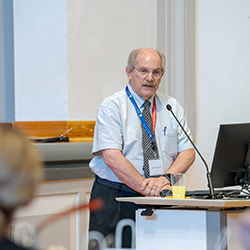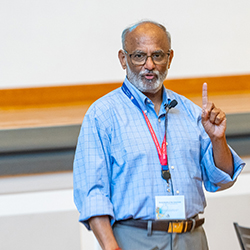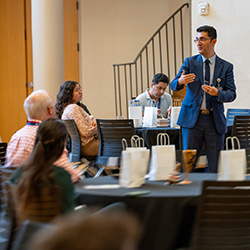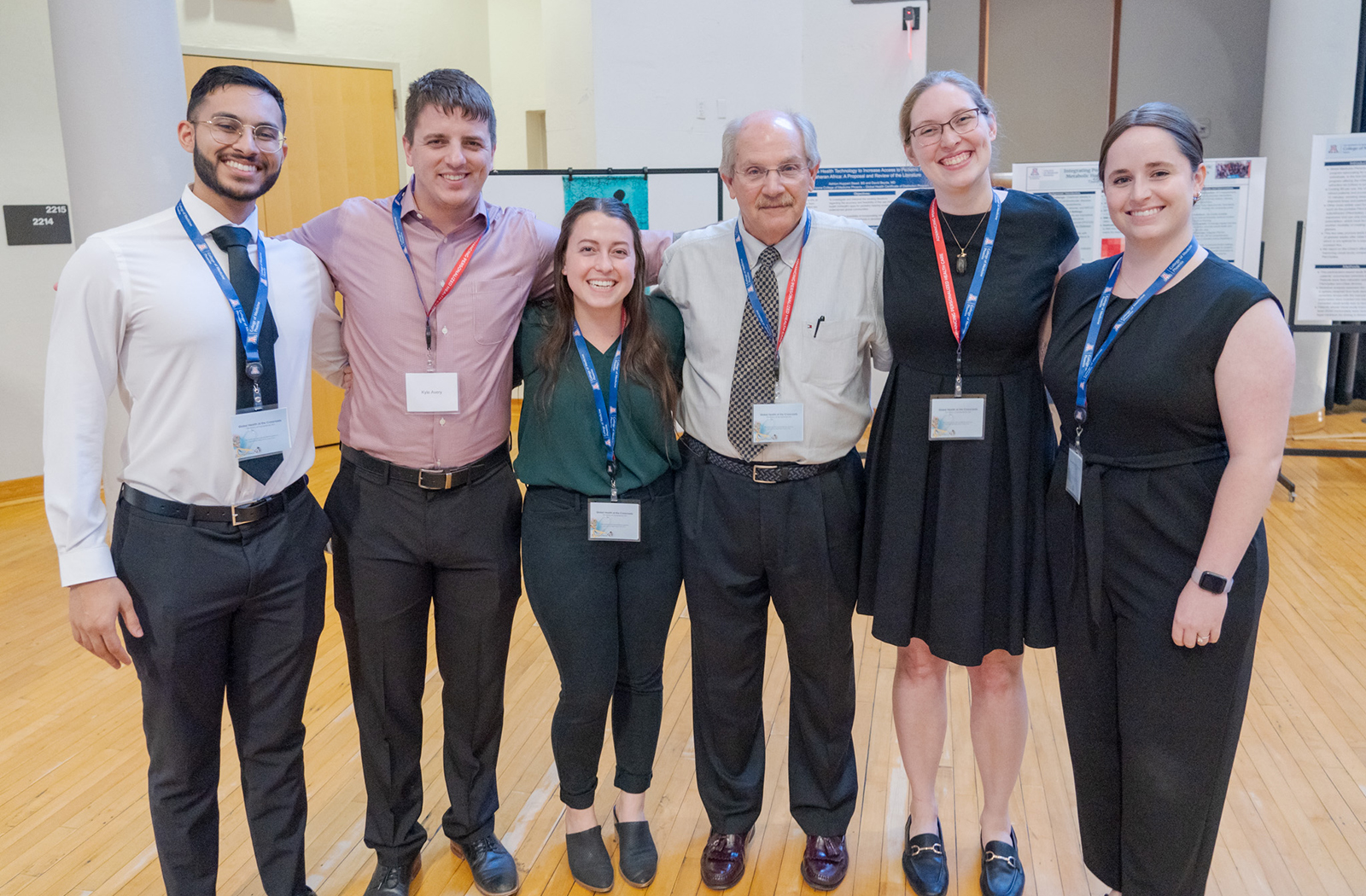Symposium brought together physicians and students to discuss ethical approaches to serve global health needs
CHASE CONGLETON
Medicine is evolving to incorporate ethical principles in support of global health intervention, helping address a variety of challenges that prevent people from living well. There is a fine line between providing aid and unintentionally perpetuating harm.

Global Health at the Crossroads, a one-day event hosted by the University of Arizona College of Medicine – Phoenix’s Department of Bioethics and Medical Humanism, aimed to explore the ethical considerations and best practices in providing humanitarian aid.
David Beyda, MD, professor and chair of the Department of Bioethics and Medical Humanism, organized the event and hosted two talks: “The State of Global Health – Challenges and Triumphs” and “Ethics into Action – Next Steps.” He, alongside several other physicians, provided seminars discussing the nuances of practicing global medicine.
During his third year in residency, Dr. Beyda was asked by the United Nations High Commissioner for Refugees to direct their pediatric ward in a refugee camp where Cambodian refugees were staying. This experience solidified Dr. Beyda’s interest in pursuing global health and exploring ethical issues related to medicine.
“Over the course of 45 years, I helped take care of about 40,000 children in over 50 countries,” Dr. Beyda said. “Because of that experience, it gave me great insight into what we needed to be doing as it relates to ethics of humanitarian care.”
Lisa McClellan, MD, a family practice physician and director of Ambulatory Services at the Phoenix Indian Medical Center, spoke to attendees about her experiences working in global medicine and talked about common misconceptions and challenges of practicing in other countries.
“If we go in with free medication, what happens to some of these communities where there are a lot of volunteers coming in with free medication? The local doctor suffers,” Dr. McClellan said. “The patients start to wait for the Americans to come with the free medication, so that effect can have an impact on the local environment.”

Additionally, Dr. McClellan advised that having a good interpreter is important for strengthening doctor-patient relationships.
Kris Vijay, MD, medical director at Arizona Heart Foundation, talked about providing medical care with limited resources, while emphasizing that health care access can lead to better wellbeing of the community.
“Health care is not only everyone’s right, but everyone’s responsibility and informed self-care should be the main goal,” Dr. Vijay said. “Ordinary people provided with clear, simple information can prevent most common health problems in their own homes.”
Ali Al Yaqoobi, MD, assistant clinical professor for the U of A College of Medicine – Phoenix’s Department of Biomedical Informatics, addressed technology in global health, specifically information and communications technology (ICT).
“Globally, ICT is redefining health and there’s so many opportunities for patients and providers to build relationships,” Dr. Al Yaqoobi said.
Because of how diverse each country’s health problems can be, ICTs might not be a priority for locations with warfare — such as Ukraine, South Sudan or Russia. Dr. Al Yaqoobi said physicians need to be aware of what people need most when it comes to health care.
“We are not just one country that decides what others do. We have to depend on each other to improve health care,” Dr. Al Yaqoobi said. “It’s not a one-way solution.”

James Lindgren, MD, an associate clinical professor of Internal Medicine and the medical director for the Center for Simulation and Innovation at the college, spoke about intersecting voices between health ministries and non-governmental organizations (NGOs).
While NGOs can have positive effects on the community they are helping, sometimes mismatched priorities and miscommunication can lead to lesser relief.
“We had lots of search and rescue efforts early after the earthquake in Haiti, where countries from all over the world were coming and searching for survivors, but we actually had no transportation to get people to the few working medical centers,” Dr. Lindgren said.
Additional presentations were delivered by Jason Beste, MD, an infectious disease and public health specialist, who presented on the decolonization of global health, as well as medical students from the college’s Certificate of Distinction in Global Health. The students shared their ongoing research posters and projects. Each tackled an aspect related to global medicine.
Taaha Adamji, a third-year medical student at the college, developed his project with the help of Dr. Lindgren. Adamji pondered the potential of using point of care ultrasounds to measure metabolic health for children.
“By using an ultrasound to measure the amount of visceral fat the children have, the literature has shown to be predictors of long-term outcomes — such as diabetes, hypertension and liver diseases,” Adamji said.
The event, held at the Virginia G. Piper Auditorium, was sponsored by a grant from the Agnes Nelms Haury Trust.

